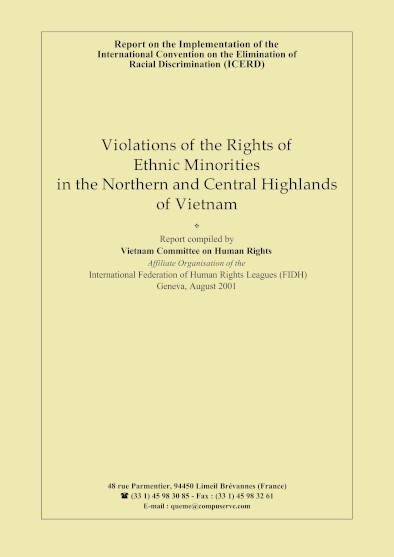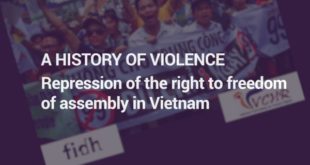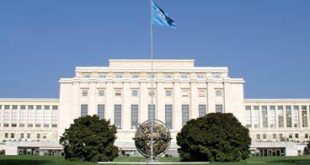Report compiled by
Vietnam Committee on Human Rights
for the 59th Session (30 July-17 August 2001)
of the Committee on the Elimination of Racial Discrimination (CERD)
The Vietnam Committee on Human Rights (hereafter « Vietnam Committee ») welcomes the Report submitted by the Socialist Republic of Vietnam on its implementation of the International Convention on the Elimination of Racial Discrimination (ICERD). The organisation nevertheless regrets that, whereas States Parties have an obligation to submit periodic reports to the Committee every two years (following an initial report filed one year after the ICERD’s entry into force), this is only the third report submitted by the Socialist Republic of Vietnam since it acceeded to the ICERD on June 9th 1982. Indeed, Vietnam has failed to comply with UN reporting mechanisms to a number of treaty bodies, with initial reports submitted several years late and second reports long overdue (1).
Background
Vietnam’s 77-million-strong population is made up of over 50 ethnic communities. Most Vietnamese (over 85%) are ethnic Viets, or Kinh people, who traditionally live in the lowlands. The minority ethnic communities live mainly in the mountainous and highland regions of Central and Northern Vietnam. Because of their remote geographical situation, these regions are traditionally amongst the poorest areas of Vietnam. 60% of children in mountainous areas suffer from malnutrition (2), and the majority of the population lives under the poverty line.
The Vietnamese Government admits that poverty in these areas is due not only to lack of ressources and infrastructure, but also to official corruption and mismanagement, as well as the forced implementation of unsuitable development policies in the highland regions which have undermined the ethnic peoples’ confidence in the Communist Party and State.
« In the areas of minority peoples, the socio-economic life of the people is full of hardships and we have fallen short in our efforts to solve this problem. (…) A situation of hardship and shortages, and a life of hunger and want have created a great void of trust and belief. The activities of the [Fatherland] Front and other mass organisations are not responsive to the needs of the lives of the people. The voice of the Party and the good feeling of the people about the Party is long lost and buried. In not a few places, the people believe that « the heart of the cadres no longer cares for the people » (3).
This lack of trust does not stem only from the enforcement of socio-economic policies. The Vietnam Committee is concerned that ethnic communities in Vietnam are suffering from a deliberate and systematic policy of discrimination which includes expropriation from ancestral lands, population displacement, State-sponsored migration of Vietnamese into minority regions, religious persecution, arbitrary arrest, disappearances, and the forced sterilisation of women. This policy, which in 2001 led to the most serious outbreak of popular unrest ever known in unified Viet Nam, is a grave violation of Article 1 of the ICERD, which prohibits «any discrimination based on race, colour, descent or national or ethnic origin which has the effect or purpose of nullifying or impairing the recognition, enjoyment or exercise, on an equal footing, of human rights and other fundamental freedoms in the political, economic, social, cultural or any other field of life».
————————————————————–
(1) The Socialist Republic of Vietnam is state party to a number of treaties, e.g. the ICCPR (accession 1982) : 1st report submitted in 1990, 2nd report overdue since 1991, presented this year ; the ICSECR (accession 1982) : 1st report submitted in 1993, 2nd report overdue since 1995 ; the Convention on the Elimination of All Forms of Discrimination against Women (CEDAW : 1982) : 1st report submitted in 1986, 2nd report overdue since 1987, presented this year ; the Convention on the Rights of the Child (1990) : 1st report submitted in 1992, 2nd report overdue since 1997.
(2) « Vietnam » in Human Rights in Developing Countries Yearbook 1997, Nordic Rights Publications.
(3) Top Secret Document, Steering Committee 184, Hanoi, May 3, 1999, « Developing the Economy and Culture, Normalising Society and Building Political Infrastructure in the Mountainous Regions where the Minority Peoples are Christian believers ».
 Quê Me Quê Me: Action for democracy in Vietnam & Vietnam Committee on Human Rights
Quê Me Quê Me: Action for democracy in Vietnam & Vietnam Committee on Human Rights




